Tiny Seeds, Tremendous Power: Why Sunflower Seeds Are a Must-Have
Did you know that a common, crunchy snack actually possesses an extraordinary array of health advantages? The benefits of sunflower seeds often go unnoticed, yet these tiny kernels are a nutritional giant. Many people recognize sunflower seeds (Helianthus annuus) as bird feed or a simple munch, but they are truly a nutritional powerhouse. This article offers a comprehensive guide, delving into the science-backed benefits, impressive sunflower seeds nutrition profile, versatile culinary uses, and important considerations. You will discover a detailed nutritional breakdown, numerous health benefits, creative ways to include these healthy snacks in their diet, easy recipes, potential risks, and answers to frequently asked questions about what are sunflower seeds good for.
Decoding the Sunflower Seed: From Flower to Food
What are sunflower seeds, really? These seeds originate from the magnificent, large flower heads of the sunflower plant, scientifically known as Helianthus annuus. Each sunflower head can impressively contain up to 2,000 seeds. There are primarily two types of sunflower crops: one cultivated for the edible seeds we consume, and the other, more widely farmed, for oil production. The types of sunflower seeds meant for eating typically have black-and-white striped inedible shells, or hulls, while those used for oil have solid black shells. Sunflower kernels, which are the inner part of the seed, boast a mild, nutty flavor and a texture that's firm yet tender. People often roast them to enhance their taste, though raw seeds are also available and equally delightful.
Sunflower Seeds Nutrition Facts: A Deep Dive into Their Goodness
The sunflower seeds nutrition profile showcases what makes them a true nutritional powerhouse. A standard serving of shelled sunflower seeds, about 1/4 cup or 28.35 grams, packs a significant amount of goodness. This serving size contains approximately 165 calories, 5.5 grams of protein, and 14.1 grams of healthy fats, predominantly monounsaturated and polyunsaturated fats. It also provides 3.2 grams of dietary fiber, contributing to digestive health. The nutritional value of sunflower seeds shines with its abundance of key micronutrients. They are an exceptional source of Vitamin E, offering 49% of the Daily Value (DV), and Selenium, providing 41% of the DV. Other important minerals in sunflower seeds include Magnesium (9% DV), Copper (58% DV), Zinc (14% DV), Manganese (26% DV), and Iron (6% DV). Notable vitamins in sunflower seeds also include Niacin (13% DV), Vitamin B6 (13% DV), and Folate (17% DV). These nutrients, including potent antioxidants and phytosterols, play crucial roles in maintaining overall health. Sunflower seeds protein and sunflower seeds fiber content, along with their healthy fats, make them a valuable addition to a balanced diet. Nutritional data is often sourced from reliable databases like the USDA FoodData Central. Values are typically based on a 2000-calorie diet.
Unlock a Healthier You: 10+ Evidence-Based Benefits of Sunflower Seeds
The health benefits of sunflower seeds are numerous, making them much more than just a simple snack. These seeds are packed with nutrients that support various bodily functions, from protecting your heart to boosting your immune system. Many studies highlight why these anti-inflammatory foods and immune boosting foods should be a regular part of your diet.
1. Supports Heart Health & Manages Cholesterol
Sunflower seeds heart health benefits are significant, primarily due to their content of healthy fats, particularly linoleic acid, an unsaturated fatty acid. These beneficial fats, along with phytosterols present in the seeds, help in managing cholesterol levels by potentially lowering "bad" LDL cholesterol. Magnesium and Vitamin E in sunflower seeds also contribute to cardiovascular protection. Some studies indicate that daily consumption of sunflower seeds can lead to a reduction in blood pressure and triglycerides, which are important markers for heart health.
2. Powerful Anti-Inflammatory Properties
The sunflower seeds inflammation-reducing capabilities come from their rich supply of Vitamin E, a potent antioxidant. This vitamin, along with flavonoids and other plant compounds, helps combat oxidative stress and reduce chronic inflammation in the body. By mitigating chronic inflammation, sunflower seeds can contribute to a lower risk of developing certain chronic diseases.
3. Boosts Your Immune System
People looking to boost immunity with sunflower seeds will find them to be a valuable ally. These seeds provide essential micronutrients like selenium, zinc, and Vitamin E, all of which are crucial for a robust immune system. Selenium and zinc play vital roles in immune cell development and function, enhancing the body's ability to fight off infections and pathogens. Vitamin E acts as an antioxidant, protecting immune cells from damage.
4. May Help Manage Blood Sugar Levels (Diabetes-Friendly)
Sunflower seeds diabetes management potential is an area of growing interest. The fiber, protein, and healthy fats in sunflower seeds can help regulate blood sugar absorption, preventing sharp spikes. Compounds like chlorogenic acid found in sunflower seeds may also contribute to lowering blood sugar levels. While more research is needed, some studies suggest that daily intake of sunflower seeds as part of a healthy diet may reduce fasting blood sugar, making them a good option for individuals managing type 2 diabetes.
5. Promotes Healthy Skin & Hair
For those seekingsunflower seeds for skin benefits, Vitamin E is a key nutrient. As a powerful antioxidant, Vitamin E helps protect skin cells from damage caused by free radicals and UV radiation. Essential fatty acids in sunflower seeds also contribute to maintaining skin's natural barrier, keeping it hydrated and healthy. Nutrients like linoleic acid and iron may also offer benefits for hair health, potentially supporting sunflower seeds for hair growth.
6. Supports Brain Health and Mood
Sunflower seeds for brain function and mood are supported by nutrients like Vitamin B6 and magnesium. Vitamin B6 is essential for the synthesis of neurotransmitters, which are chemical messengers in the brain that influence mood, concentration, and memory. Magnesium plays a role in healthy nerve function and can help manage stress and anxiety, contributing to an improved mood naturally.
7. Aids in Energy Production
Sunflower seeds for energy come from their B vitamin content, particularly Thiamine (Vitamin B1), and protein. B vitamins are crucial for converting the food you eat into usable energy, playing a significant role in overall metabolism. The protein in sunflower seeds also helps build and repair tissues, including muscles, further contributing to sustained energy levels, making them a natural energy booster.
8. Contributes to Strong Bones
To strengthen bones naturally, sunflower seeds for bones offer important minerals like magnesium, phosphorus, and copper. Magnesium and phosphorus are fundamental components of bone structure, contributing to bone density. Copper plays a role in maintaining the strength of connective tissues, including those in bones.
9. May Aid in Healthy Weight Management
Sunflower seeds for weight loss or management can be beneficial when consumed mindfully. The protein and fiber in sunflower seeds promote satiety, helping you feel fuller for longer. This feeling of fullness can help control appetite and overall calorie intake, supporting weight management goals. However, it's important to remember that sunflower seeds are calorie-dense, so portion control is key to reaping these benefits without overconsumption.
10. Rich in Antioxidants to Fight Free Radicals
The antioxidants in sunflower seeds, including Vitamin E, selenium, and various plant compounds like phenolic acids and flavonoids, are powerful allies against free radical damage. These antioxidants neutralize harmful free radicals, protecting cells from oxidative stress. This cellular protection is linked to a reduced risk of various chronic diseases.
11. Supports Thyroid Function (Selenium)
Sunflower seeds and thyroid function are connected through their selenium content. Selenium is an essential mineral that plays a critical role in thyroid hormone metabolism and protecting the thyroid gland from oxidative damage. Adequate selenium intake is vital for maintaining healthy thyroid function.
12. Potential Benefits During Pregnancy (Folate)
Sunflower seeds contain folate, a B vitamin crucial during pregnancy for fetal development. Folate helps prevent neural tube defects in the developing baby. While beneficial, pregnant individuals should always consult their healthcare provider for personalized nutritional advice.
Eating Sunflower Seeds: Tips, Ideas, and Simple Recipes
Learning how to eat sunflower seeds can open up a world of culinary delight and nutritional benefits. These versatile seeds can be enjoyed raw or roasted, and shelled (kernels) or unshelled (though you only eat the kernel). There are numerous ways to use sunflower seeds, from a simple snack to an ingredient in elaborate dishes. Incorporating sunflower seeds recipes into your diet is an easy way to boost your intake of essential nutrients.
Simple Ways to Add Sunflower Seeds to Your Diet
Adding sunflower seeds to your daily meals is remarkably simple and adds a delightful crunch and nutty flavor. You can sprinkle shelled sunflower seeds on your morning yogurt, oatmeal, or cereals for an instant nutritional upgrade. They make a wonderful addition to trail mixes, providing sustained energy for snacking on the go. Toss them into salads for added texture or blend them into smoothies for a creamy, nutrient boost. Sunflower seeds also work well in stir-fries, homemade granola bars, or as a topping for soups and baked goods like muffins and bread.
DIY Roasting: How to Roast Sunflower Seeds at Home (Plus Flavor Ideas!)
Knowing how to roast sunflower seeds at home allows you to control the ingredients and create homemade roasted sunflower seeds tailored to your taste. Oven Roasting:
- Preheat your oven to 300°F (150°C).
- Spread shelled, raw sunflower seeds in a single layer on a baking sheet.
- Roast for 10-15 minutes, or until lightly golden and fragrant, stirring occasionally to prevent burning. Pan Roasting:
- Heat a dry skillet over medium heat.
- Add shelled, raw sunflower seeds in a single layer.
- Toast for 3-5 minutes, stirring frequently, until golden brown and aromatic. Flavor Ideas:
- Lightly Salted: Toss warm roasted seeds with a pinch of sea salt.
- Spicy Paprika: Mix warm seeds with a dash of paprika, a pinch of cayenne pepper (optional), and a little salt.
- Cinnamon Sugar: For a sweeter treat, toss warm seeds with a mixture of cinnamon and a touch of sugar or maple syrup.
Quick & Healthy Recipe Ideas
Sunflower Seed Energy Bites (No-Bake) These energy bites are perfect for a quick, healthy snack. Ingredients:
* 1 cup rolled oats
* 1/2 cup sunflower seed butter
* 1/3 cup honey or maple syrup
* 1/4 cup shelled sunflower seeds
* 1/4 cup shredded coconut (optional)
* 1 tsp vanilla extract
Instructions:
1. Combine all ingredients in a bowl.
2. Mix well until everything is evenly incorporated.
3. Roll into small balls (about 1 inch in diameter).
4. Place on a baking sheet lined with parchment paper and refrigerate for at least 30 minutes to firm up. Store in an airtight container in the refrigerator.
Simple Sunflower Seed Pesto (Nut-Free Alternative) This pesto offers a great nut-free alternative, using sunflower seeds for richness. Ingredients:
* 1/2 cup shelled raw sunflower seeds, lightly toasted
* 2 cups fresh basil leaves
* 2 cloves garlic, chopped
* 1/2 cup grated Parmesan cheese (optional, or nutritional yeast for vegan)
* 1/2 cup olive oil
* Salt and pepper to taste
* Juice of 1/2 lemon
Instructions:
1. Combine toasted sunflower seeds, basil, garlic, and Parmesan (if using) in a food processor.
2. Pulse until coarsely chopped.
3. With the food processor running, slowly drizzle in the olive oil until the pesto is smooth but still has some texture.
4. Stir in lemon juice, salt, and pepper to taste. Use immediately or store in an airtight container in the refrigerator.
Refreshing Salad with Toasted Sunflower Seeds & Lemon Dressing This salad is light, crunchy, and full of flavor. Ingredients:For the Salad:
* 5 oz mixed greens
* 1/2 cucumber, sliced
* 1 cup cherry tomatoes, halved
* 1/4 red onion, thinly sliced (optional)
* 1/4 cup toasted shelled sunflower seeds
*For the Lemon Dressing:*
* 1/4 cup olive oil
* Juice of 1 lemon
* 1 tsp Dijon mustard
* 1/2 tsp honey or maple syrup (optional)
* Salt and pepper to taste
Instructions:
1. In a small bowl, whisk together all dressing ingredients until well combined.
2. In a large salad bowl, combine mixed greens, cucumber, cherry tomatoes, and red onion (if using).
3. Drizzle with lemon dressing and toss gently to coat.
4. Sprinkle toasted sunflower seeds on top before serving.
Making Your Own Sunflower Seed Butter
Creating your own homemade sunflower seed butter is surprisingly easy and offers a healthy alternative to commercial spreads. This sunbutter recipe requires just one main ingredient. Ingredients:
* 2 cups raw or roasted unsalted shelled sunflower seeds
* Pinch of salt (optional)
* 1-2 tsp oil (sunflower or coconut, optional, for creamier texture)
* 1-2 tsp sweetener (honey or maple syrup, optional)
Instructions:
1. If using raw seeds, you might want to lightly roast them first (as per DIY Roasting instructions above) to enhance the flavor. Let them cool slightly.
2. Place the sunflower seeds in a high-powered food processor.
3. Process for 10-15 minutes. The seeds will go through stages: crumbly, then a thick paste, and finally a smoother, more liquid butter. Scrape down the sides of the processor as needed.
4. Once the butter is relatively smooth, add salt and any optional oil or sweetener if desired. Process for another minute to combine.
5. Store in an airtight container in the refrigerator. It will thicken as it chills.
Good to Know: Potential Side Effects and Precautions for Sunflower Seeds
While sunflower seeds offer many health benefits, there are some sunflower seeds side effects and precautions to consider, especially regarding too many sunflower seeds or potential sunflower seeds allergy.
Calorie Density and Weight Gain
Sunflower seeds are calorie-dense, meaning a small serving contains a relatively high number of calories. While these calories come with beneficial nutrients, overconsumption can contribute to weight gain if not balanced with overall energy expenditure. Practicing portion control and moderation is essential.
Allergies
A sunflower seed allergy, though less common than some other nut and seed allergies, does exist. Symptoms of an allergic reaction can range from mild, such as itching or swelling around the mouth, to more severe reactions like hives, breathing difficulties, or anaphylaxis. Anyone suspecting an allergy should seek medical attention.
Sodium Content (for Salted Varieties)
Many commercially available sunflower seeds are salted, which can significantly increase sodium intake. High sodium consumption is linked to elevated blood pressure and other health concerns. It's advisable to opt for unsalted sunflower seeds or lightly salted varieties to manage sodium intake.
Cadmium Content
Sunflower plants can absorb cadmium, a heavy metal, from the soil, which can then accumulate in the seeds. While the levels in typical consumption amounts are generally considered safe for most people, long-term excessive intake of cadmium can be harmful to the kidneys. Moderation in consumption is a prudent approach.
Digestive Issues
The high fiber content in sunflower seeds is generally beneficial for digestion. However, a sudden large increase in fiber intake or consuming excessive amounts of sunflower seeds, especially for those not used to a high-fiber diet, might cause digestive discomfort such as bloating, gas, or stomach ache for some individuals.
Recommended Daily Intake
A general recommended intake or portion size for sunflower seeds is about a handful, which is roughly 1/4 cup or 30 grams of shelled seeds. This amount allows for enjoyment of their nutritional benefits as part of a balanced diet without excessive calorie intake. For personalized dietary advice, consulting a nutritionist is always recommended.
Clearing the Air: Common Myths & Facts About Sunflower Seeds
There are several sunflower seeds myths floating around. Let's clarify with some facts about sunflower seeds.
Myth: Sunflower seeds are too fatty and unhealthy.
Fact: This is a common misconception. While sunflower seeds do contain fat, it's primarily healthy unsaturated fats (monounsaturated and polyunsaturated). These fats are beneficial for heart health and are an essential part of a balanced diet when consumed in moderation. The key is distinguishing between these healthy fats and unhealthy saturated or trans fats.
Myth: You can't eat too many because they are healthy.
Fact: While packed with nutrients, the idea that you can eat unlimited amounts is not accurate. Sunflower seeds are calorie-dense. Overconsumption can lead to excessive calorie intake, potentially causing weight gain, and may also result in side effects like digestive issues or too much cadmium exposure as previously discussed. Moderation is crucial.
Myth: Only birds eat sunflower seeds.
Fact: This is far from the truth. Sunflower seeds have a long history of human consumption and are valued for their nutritional content and culinary versatility across many cultures. They are a popular snack and ingredient for humans worldwide, not just avian friends.
The Takeaway: Embrace the Goodness of Sunflower Seeds
To summarize the benefits of sunflower seeds summary, these tiny kernels are nutritional giants. They offer significant advantages for heart health, possess anti-inflammatory properties, support the immune system, and are packed with essential nutrients. When consumed in moderation, sunflower seeds are a remarkably nutritious and versatile addition to a balanced approach to healthy eating. We encourage you to explore the many ways to incorporate these delightful seeds into your meals and snacks. Share your favorite ways to eat sunflower seeds in the comments below!
Your Questions Answered: Frequently Asked Questions about Sunflower Seeds
This sunflower seeds FAQ section addresses common questions about sunflower seeds.
How many sunflower seeds should I eat a day? Generally, a handful, which is about 1/4 cup or 30 grams of shelled seeds, is considered a good daily portion.
Are roasted sunflower seeds as healthy as raw? Roasting can slightly alter some heat-sensitive nutrients, but both raw and roasted sunflower seeds are healthy options. The key is to choose unsalted or lightly salted varieties to control sodium intake.
Can sunflower seeds help with weight loss? They can support weight management because their protein and fiber content promotes satiety. However, due to their calorie density, they should be eaten in moderation as part of a balanced diet.
Are sunflower seeds good for your skin? Yes, sunflower seeds are beneficial for skin health, primarily due to their high Vitamin E content, which acts as an antioxidant, and essential fatty acids.
Do sunflower seeds increase cholesterol? No, quite the opposite. Sunflower seeds contain healthy unsaturated fats and phytosterols that can help lower "bad" LDL cholesterol levels.
Can I eat sunflower seed shells? No, sunflower seed shells (hulls) are largely indigestible and can cause digestive issues or blockages if consumed in large quantities. They should be discarded.
Are sunflower seeds high in protein? Yes, sunflower seeds are a good source of plant-based protein, providing about 5.5 grams per 1/4 cup serving.
Are sunflower seeds good for diabetics? They may help manage blood sugar levels due to their fiber, protein, healthy fats, and specific compounds like chlorogenic acid, when included as part of a balanced diet.
Do sunflower seeds cause acne? Some studies suggest a potential link between sunflower seed intake and acne aggravation in some individuals, but the evidence is not conclusive, and more research is needed. Nutrients like Vitamin E in sunflower seeds may actually support skin health. If you have acne concerns, it's best to consult a dermatologist.
Where do sunflower seeds come from? Sunflower seeds come from the large flower heads of the sunflower plant, Helianthus annuus.
Can sunflower seeds go bad? How to store them? Yes, sunflower seeds can go rancid due to their fat content. To maintain freshness, store them in an airtight container in a cool, dark, and dry place. For longer storage, refrigeration or freezing is recommended.
Are sunflower seeds gluten-free? Yes, sunflower seeds are naturally gluten-free.
What is sunflower seed butter? Sunflower seed butter is a spread made from ground sunflower seeds, similar in texture and use to peanut butter. It's a great alternative for those with nut allergies.
Do sunflower seeds have Omega-3? Sunflower seeds do contain some Omega-3 fatty acids (ALA), but they are much richer in Omega-6 fatty acids (linoleic acid). It's important to balance Omega-6 intake with adequate Omega-3 sources from other foods like flax seeds or fatty fish.
Are there any benefits of sunflower seeds for men/women specifically? The general health benefits of sunflower seeds apply to everyone. Nutrients like zinc are particularly important for male reproductive health. Folate is crucial for women of childbearing age, especially during pregnancy, but consultation with a doctor for pregnancy nutrition is always advised.
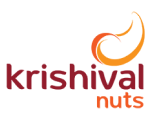

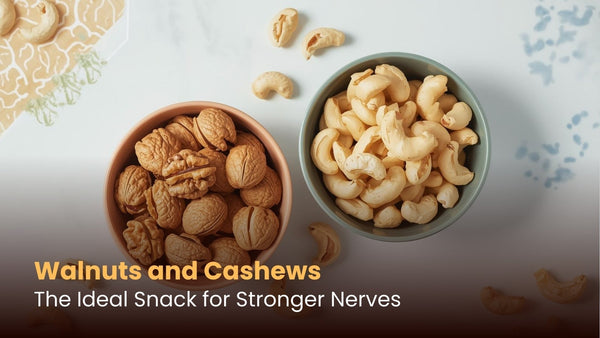

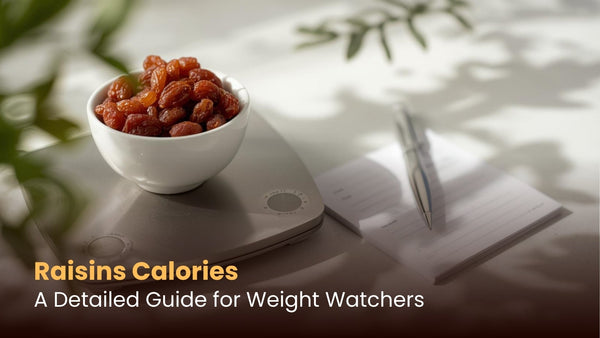
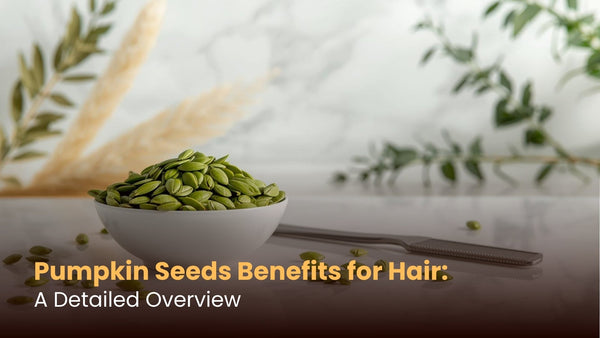


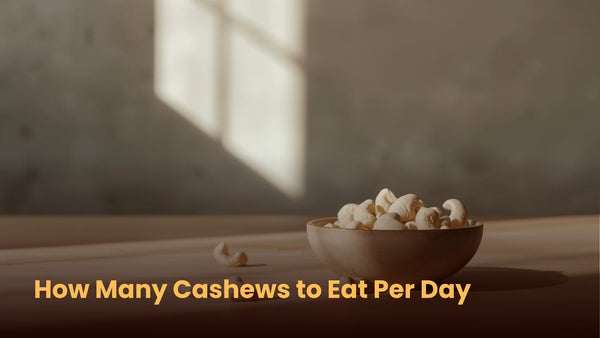
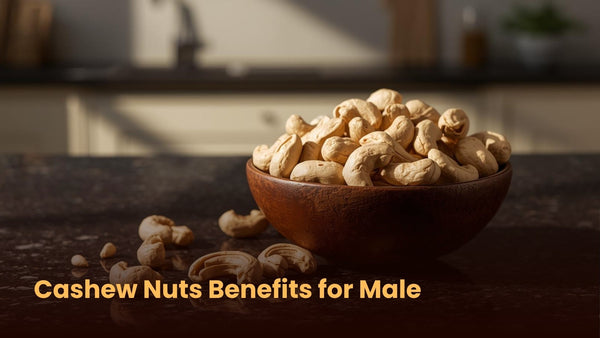
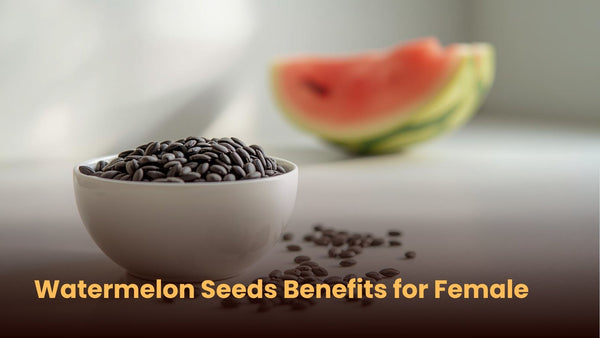
Share Your Thoughts